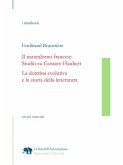The first English translation of one of the novels that helped change modern Arab literature
Mohamed Choukri, one of the most important writers of modern Moroccan literature, grew up in extreme poverty in Tangier and was illiterate until the age of twenty. After learning to read, he realized that "writing could also be a way to expose, to protest against those who have stolen my childhood, my teenage-hood and a piece of my youthfulness." His vivid portrayals of marginalized people, which had been considered taboo, led to the censorship of his work and a cultural backlash in the Middle East.
In Faces, the third book in his trilogy of fictionalized autobiographical works, he describes gritty events, extreme poverty, prostitution, violence, sexual revelry, deprivation, and abuse. It is through his storytelling that Choukri reflects on human nature, love, and kindness-emphasizing the need for community and collaboration. Faces humanizes those undergoing poverty and places the blame for the violence they encounter squarely on colonial forces and the resulting postcolonial government, while opening literary traditions to a new style of writing.
Choukri's friendships with Tennessee Williams, Paul Bowles, Jean Genet, and other writers brought him attention in his lifetime. But Faces-his last novel, which was originally published in Arabic in 2000-has remained untranslated until now. In English for the first time, Jonas Elbousty's translation allows Choukri's work to reach wider international discussions of contemporary Arab literature.
Mohamed Choukri, one of the most important writers of modern Moroccan literature, grew up in extreme poverty in Tangier and was illiterate until the age of twenty. After learning to read, he realized that "writing could also be a way to expose, to protest against those who have stolen my childhood, my teenage-hood and a piece of my youthfulness." His vivid portrayals of marginalized people, which had been considered taboo, led to the censorship of his work and a cultural backlash in the Middle East.
In Faces, the third book in his trilogy of fictionalized autobiographical works, he describes gritty events, extreme poverty, prostitution, violence, sexual revelry, deprivation, and abuse. It is through his storytelling that Choukri reflects on human nature, love, and kindness-emphasizing the need for community and collaboration. Faces humanizes those undergoing poverty and places the blame for the violence they encounter squarely on colonial forces and the resulting postcolonial government, while opening literary traditions to a new style of writing.
Choukri's friendships with Tennessee Williams, Paul Bowles, Jean Genet, and other writers brought him attention in his lifetime. But Faces-his last novel, which was originally published in Arabic in 2000-has remained untranslated until now. In English for the first time, Jonas Elbousty's translation allows Choukri's work to reach wider international discussions of contemporary Arab literature.
Dieser Download kann aus rechtlichen Gründen nur mit Rechnungsadresse in A, D ausgeliefert werden.









